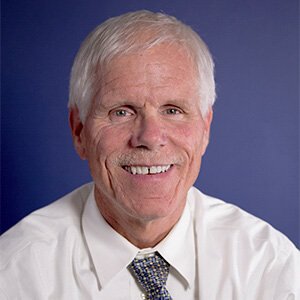
As questions loom surrounding state-sanctioned expanded teacher licensure options, Concordia University Wisconsin will welcome Deputy State Superintendent Dr. Michael Thompson to enlighten K-12 educators across the state.

The university’s School of Education will host its annual Graduate Education Summit on Thursday, Aug. 8. Current educators, or those interested in becoming an educator, are invited to attend the free event. Thompson’s address, which will run from 10 a.m. to noon, will take place in Pharmacy 008 on Concordia’s Mequon campus, 12800 N. Lake Shore Drive. No reservation is required for this free event.
Thompson’s Aug. 8 address is titled “The Emerging Vision of Education in the State of Wisconsin.” Attendees can expect him to share more about the Department of Public Instruction’s unique licensure pathways and other new opportunities for teachers, says Dr. Steven Witt, Director of Concordia’s Graduate Education programs.
In Aug. 2016, Wisconsin Gov. Tony Evers—who was at the time State Superintendent of Schools—announced a new Residency in Teacher Education program (or “emergency teacher’s license,” as it’s come to be colloquially called) to address a statewide teacher shortage issue, particularly in specialized fields. The program allows individuals with a bachelor’s degree to be employed within a school while earning their teaching license. According to a fall 2018 Appleton Post-Crescent story, more than 2,400 individuals held an emergency teacher’s license last school year.
Concordia, likewise, has been hard at work to help remedy the teacher shortage concern. Most notably, the university has worked to modify multiple of its graduate education offerings.
“We’ve put a great deal of effort into revising our teacher pathways in order to make them more practioner friendly,” Witt says. “The shortage of teachers and educational leaders in Wisconsin demonstrates a need at this time to raise up the teaching profession. At Concordia, we’ve worked diligently to partner with school districts to offer leaner programs that meet specific needs.”
Thus far, Concordia has added or revised licensure pathways including:
- Visually Impaired Teaching—Pending DPI approval, Concordia will be the only university in the state to offer a visually impaired teaching license when the program begins this fall. The 27-credit program includes 14 credits in courses specific to visual impairment, 12 credits related to special education/visual impairment, one credit of practicum, and a portfolio. All course will be offered online in an eight-week accelerated format, except for a summer residency for coursework in Braille, and Orientation and Mobility.
- Concordia Accelerated Program for Teacher Licensure (CAPTL) —Our master’s program for initial teacher licensure is being revised to prepare future teachers for the new state developmental ranges, in less time and with fewer credit requirements.
- School District Administrator or Superintendent—Our quality and effective administrative licensure programs are available in a variety of delivery formats.
- Reading Teacher—The #1316 license can be secured in 10 months. CUW’s online literacy program is ranked #1 in the state.
Concordia and other universities statewide await the Department of Public Instruction’s approval on the new programming. Concordia is still offering our all current programs. DPI has not indicated a timeline for approval or our newly streamlined programs yet; however, applicants are still invited to apply now for any of Concordia’s offerings.
“We’re working very closely with the DPI and with our partner school districts to ensure that our programs will be in adherence to state requirements,” Witt says. “Our Graduate Education program have a strong reputation throughout the state, and our partnership program demonstrates direct impact on student performance.”
Learn more about Concordia’s licensure options by clicking here.
— This story is written by Kali Thiel, director of university communications for Concordia University Wisconsin and Ann Arbor. She may be reached at kali.thiel@cuw.edu or 262-243-2149.
If this story has inspired you, why not explore how you can help further Concordia's mission through giving.